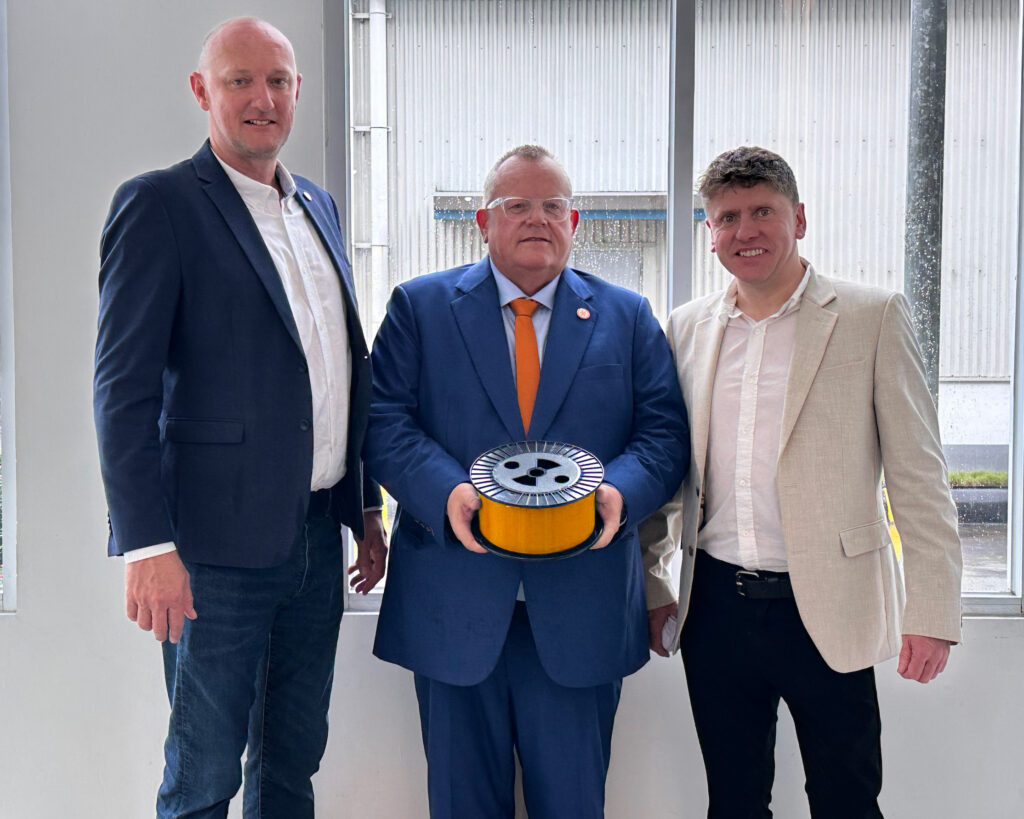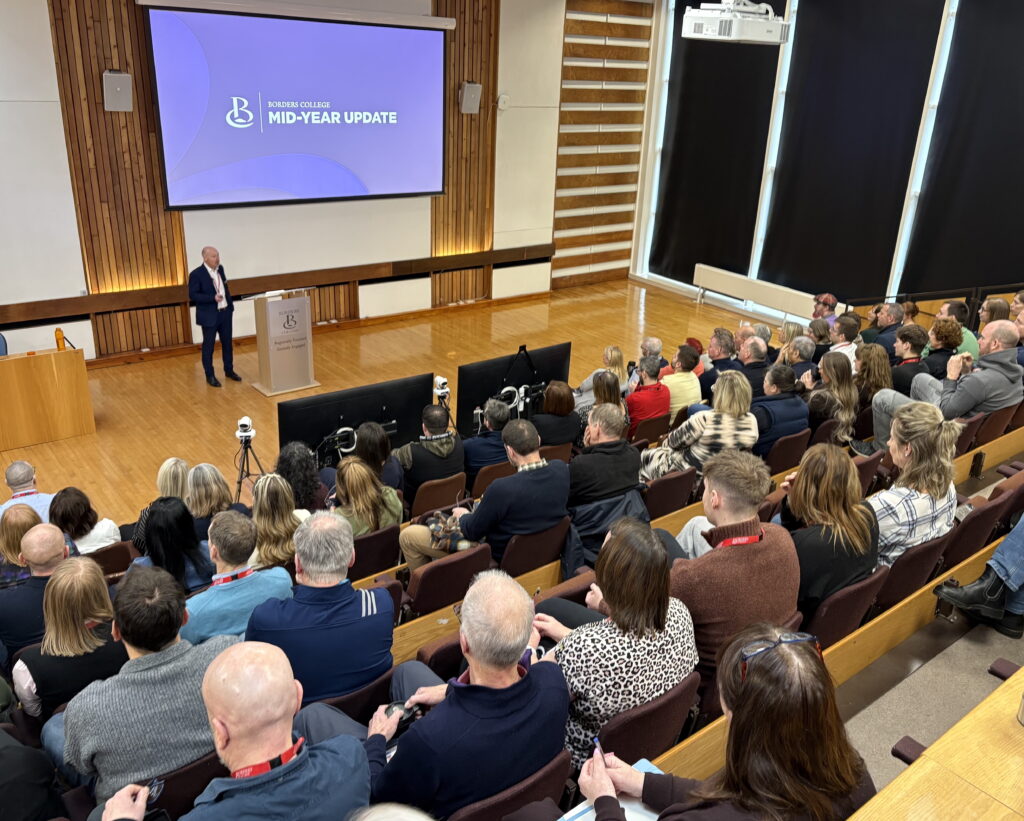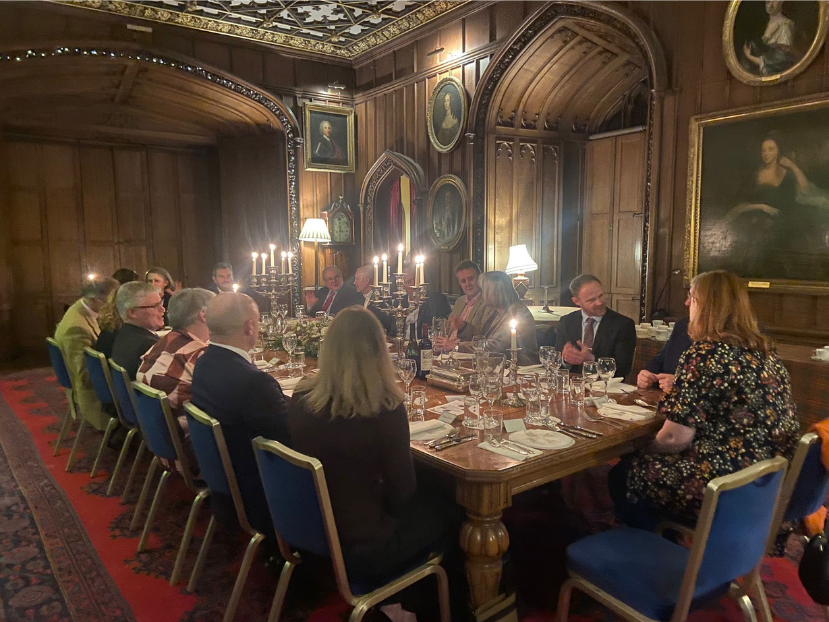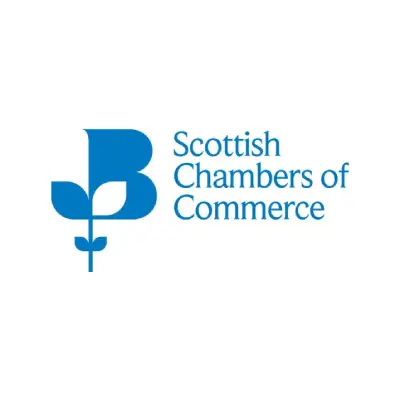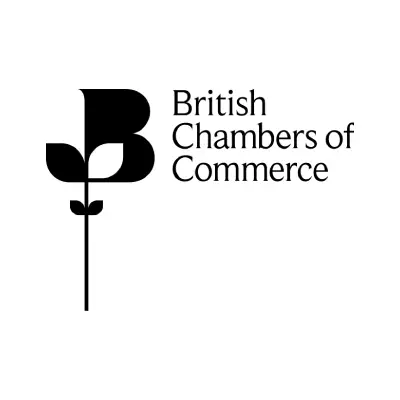Ukraine War Impacts Hawick Innovation
The war in Ukraine may not always dominate headlines, but its effects still reach places as distant as the Scottish Borders.
When Russia invaded three years ago, businesses worldwide were still recovering from the Covid pandemic. In February 2022, Marlin Industries in Hawick faced a sudden challenge.
A Hidden Industry Faces Supply Chain Disruptions
Many people don’t realise what local companies produce. Marlin, however, plays a key role in telecommunications by manufacturing cable drums and reels—essential tools for transporting and deploying cables.
Simon Graham, Managing Director in Scotland, explains how the war forced change.
“Around 80% of plywood came from Russia and Ukraine. That supply stopped overnight,” he says. “So, we had to find new materials for our drums.”
A Creative Solution: Turning Waste into Innovation
Instead of relying on wood, Marlin turned to industry waste. “The telecommunications sector generates huge waste—fibre optic cables, rope, plastics. After extensive testing, we developed sheets from recycled plastic to replace plywood.”
Now, Marlin produces a fully recyclable drum made entirely from waste fibre optic cable and ducting. These drums can be reused repeatedly, reducing environmental impact.
With a major operation in Wrexham, Marlin benefits from stricter recycling laws, which make disposal costly but encourage sustainable practices.
”"We have found recycling to be an effective way for our clientele to reduce costs."
Michael WebsterCommercial Director, Marlin Industries
Expanding Opportunities in Supply Chain Logistics
Michael Webster, Commercial Director in Wales, sees growth in supply chain logistics. “We help global manufacturers supply the UK’s cabling infrastructure. By reusing packaging and cabling, we lower carbon footprints.”
For example, surplus cable from India can be collected, re-tested, and listed for engineers to reuse. Even damaged fibre optic cables become new products like reels and protective materials. “This process creates a true circular economy,” Webster explains. “We collect waste across the UK, granulate it, and transform it into reusable components.”
The Cost Benefits of Recycling
Recycling reduces costs for businesses. Although recycling has expenses, using recycled products is cheaper than continuously purchasing new materials and sending waste to landfills.
Marlin’s innovation extends beyond cable drums. Simon and his Hawick team now produce ultra-durable plant pots, proving how recycling can create long-lasting products.
Overcoming Challenges and Driving Change
The next challenge is persuading businesses to embrace sustainable solutions. Governments promise a green revolution, but companies must adopt recycled products to expand the market.
To drive change, Marlin partnered with the Scottish Chamber of Commerce, which brought MSP Rachael Hamilton into discussions. She explores how the Scottish Government can support businesses like Marlin to meet ambitious recycling and net zero targets.
“I’ve heard about their challenges,” Hamilton says. “They deserve recognition for meeting government-set net zero goals.”
She also calls for better business rate support. “Currently, UK Government funding isn’t translating into rate exemptions. We need to showcase the Borders as a great place for business and investment.”
The Ukraine war impacts innovation in unexpected ways, pushing companies like Marlin to rethink materials, reduce waste, and create sustainable solutions. Their success highlights the potential for recycled products to shape a greener future.
Watch the full interviews here.

